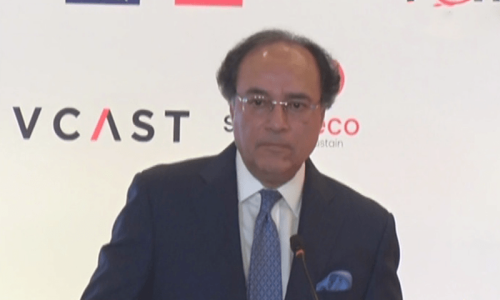LAHORE: Pakistan may approach the International Court of Justice (ICJ) for arbitration if India continues with its stance of constructing the Kishanganga Dam on River Jhelum and four other dams on the Chenab in violation of the Indus Water Treaty (IWT), Dawn learnt on Monday.
A 10-member Indian delegation is here on a three-day visit to discuss the issue but so far no headway has been made in the talks.
“We have raised serious objections to the designs of the Kishanganga Dam at the Neelum distribution point of River Jhelum and four other projects on River Chenab. Since our objections are logical, we are trying hard to persuade the Indian team to accept these in the light of the IWT.
Know more: India accused of violating Indus Water Treaty
“And if the Indian side continues sticking to its stance, we will have no option but to go for arbitration by the ICJ,” Pakistan’s Indus Water Commissioner Mirza Asif Baig said.
Sharing details of the second day’s meeting, he said the Indian team led by its Indus Water Commissioner K. Vohra tried to justify its stance about designs of the hydropower projects.
No headway made on concerns about Indian hydroelectric projects on second day of talks in Lahore
The Pakistani side presented its stance and objections to the Indian projects. “Since both the countries stuck to their stances, the issues remained unresolved,” Mr Baig said.
He said if Indian team continued sticking to its stance even on Tuesday, Pakistan would not wait for years to get its concerns redressed through more and more talks.
“For going to the ICJ, we will have to complete the procedure through the ministries of water and power, foreign affairs, law and defence,” the commissioner said.
He said it was a general policy of the government to go to the ICJ in case of failure of such talks because Pakistan had a strong and logical case.
Published in Dawn, August 26th, 2014













































